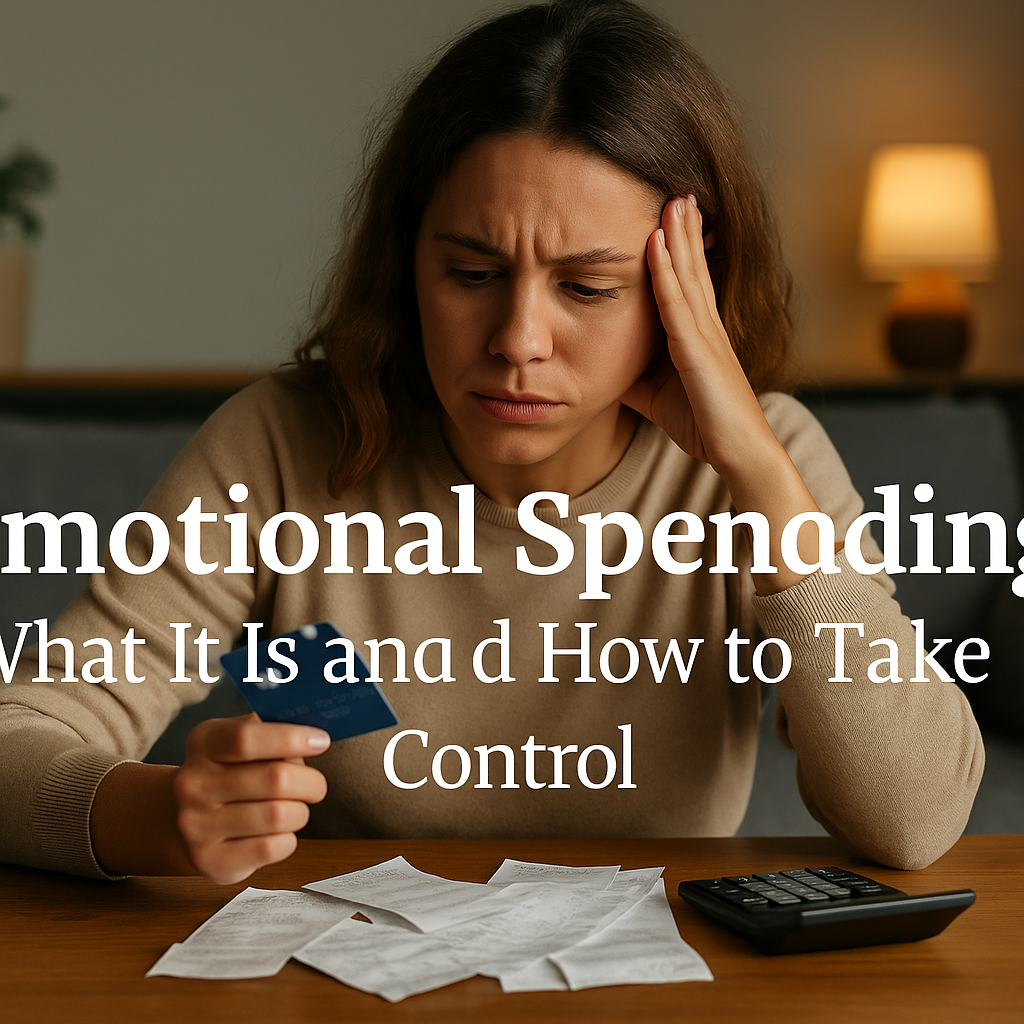Introduction
We’ve all been there: a rough day, a quick online purchase, and a few hours of feeling better—until the credit card bill arrives. Emotional spending is something most of us experience but rarely recognize in the moment. It’s not about poor money skills—it’s about how we use spending to cope, celebrate, or avoid emotions. Understanding why we spend emotionally is the first step to gaining control and making better decisions.
1. What Is Emotional Spending?
Emotional spending is when you buy something not because you need it, but because of how you feel. It’s often triggered by emotions like stress, boredom, sadness, or even happiness.
- Stress spending: Buying to relieve anxiety.
- Boredom spending: Shopping for stimulation.
- Reward spending: “I deserve this” mentality.
- Escape spending: Avoiding deeper emotions or realities.
Emotional spending can be occasional or chronic—but either way, it can sabotage your financial health.
2. Why It Happens: The Psychology Behind the Purchase
Spending gives us a temporary high. It activates the brain’s reward system, releasing dopamine and making us feel good—temporarily.
- Emotions override logic: When feelings are intense, we make impulsive decisions.
- Marketing targets emotions: Ads are designed to make us feel something—and act on it.
- Spending becomes a coping tool: Instead of addressing emotions, we distract ourselves.
Understanding these drivers helps us pause before clicking “buy now.”
3. Signs You Might Be an Emotional Spender
Not sure if you fall into this habit? Here are a few red flags:
- You shop when you’re feeling low or stressed.
- You regret purchases shortly after making them.
- You often hide purchases from loved ones.
- You use shopping as a reward or pick-me-up.
- Your spending doesn’t align with your goals.
Self-awareness is the foundation of change.
4. The Real Cost of Emotional Spending
Emotional spending may feel harmless, but over time it adds up:
- Debt accumulation: Impulse buys create credit card debt.
- Savings drain: Money meant for goals gets spent on quick fixes.
- Financial anxiety: The cycle of guilt and worry worsens stress.
- Relationship tension: Secretive or excessive spending can erode trust.
What feels like relief in the moment often leads to long-term stress.
5. How to Take Back Control
You don’t need to cut out all spending—you just need to make it intentional. Here’s how:
Step 1: Identify Your Triggers
- Keep a journal of when and why you spend.
- Note the emotions before, during, and after.
- Look for patterns—stress at work? Loneliness on weekends?
Step 2: Create a Delay Rule
- Commit to a 24-hour pause before any non-essential purchase.
- Ask yourself: Do I really need this? Will it matter in a week?
Step 3: Replace the Habit
- Swap emotional spending with healthy alternatives:
- Go for a walk
- Call a friend
- Journal or meditate
- Practice a hobby
Step 4: Set Boundaries
- Limit time on shopping apps or websites.
- Use blockers to reduce impulsive browsing.
Step 5: Reconnect with Your Financial Goals
- Keep your goals visible (vision board, sticky notes, app reminders).
- Track your progress to stay motivated.
6. Build a Budget That Honors Your Emotions
Emotions aren’t the enemy. In fact, your budget can work with them—not against them.
- Create a “fun money” category: Guilt-free spending, in moderation.
- Budget for emotional needs: Therapy, self-care, hobbies.
- Leave space for spontaneity without sabotaging progress.
The goal is balance—not restriction.
7. Get Support When You Need It
You don’t have to do this alone. If emotional spending feels out of control:
- Talk to a therapist, especially if spending is tied to trauma or mental health.
- Join online communities focused on mindful money habits.
- Work with a financial coach who understands behavioral finance.
Shame thrives in secrecy. Sharing your struggle opens the door to growth.
Conclusion: Spend With Intention, Not Emotion
You’re not bad with money—you’re human. Emotional spending is common, but it doesn’t have to control your life. By building awareness, creating better habits, and aligning spending with your true values, you can take back control.
You deserve to feel good—not just in the moment, but for the long haul. And with a little reflection and a lot of grace, your financial decisions can start reflecting the life you truly want.
